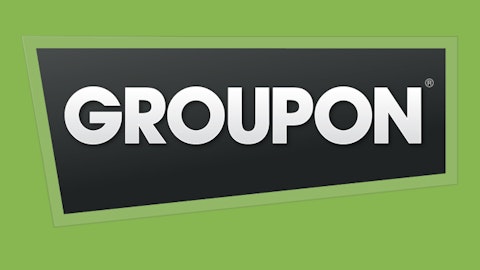You are not alone if you have transitioned from cutting discount coupons from newspapers to searching for them online for your e-commerce activities. This has, in turn, spawned an entirely new business of websites offering digital coupons. RetailMeNot Inc (NASDAQ:SALE), the operator of the largest digital coupon websites in the U.S. and the U.K., has emerged as one of the big winners riding on this trend.
Beneficiary of network effect

When a consumer visits a digital coupon website, the person wants to have access to coupons for the retailers and brands that they are interested in. At the same time, they also want to avoid the time and effort wasted with coupons past their validity date. RetailMeNot Inc (NASDAQ:SALE) boasts of the broadest selection digital coupons, by virtue of its size and relationships with retailers. RetailMeNot also relies on user comments and feedback to remove invalid or expired coupons.
RetailMeNot Inc (NASDAQ:SALE)’s extensive network of website visitors and users in turn helps attract more retailers. Retailers understand that it is much easier for them to reach out to a large number of potential customers if they are part of such a large network. According to web traffic data from comScore in January 2012, RetailMeNot.com was the largest U.S. online coupon site, with three to six times the number of unique visitors compared with competing coupon sites such as Dealspl.us, CouponCabin.com, and Savings.com.
Why retailers love RetailMeNot
Firstly, consumers are increasingly making purchases through online and mobile channels. RetailMeNot Inc (NASDAQ:SALE) represents one of the best ways for consumers to tap on this trend, with 2.5 million Facebook likes, 157,000 Twitter followers, and in excess of six million mobile application downloads.
Secondly, RetailMeNot is not a pure middleman; instead, it acts as a partner and digital marketing consultant to retailers. In certain cases, it has run multi-channel digital coupon offerings to convince clients that the impact of in-store sales cannibalization is limited. At other times, it has undertaken special projects pertaining to excess stock clearance within a short period of time, illustrating to clients the superiority of its marketplace in producing results vis-à-vis traditional advertising campaigns.
Last but not least, RetailMeNot works with retailers on a pay-for-performance model, where clients are only billed when sales associated with its digital coupons are consummated. More importantly, unlike other forms of advertising such as TV commercials, retailers are able to measure the direct impact of advertising dollars with digital coupons.
Outlook
From fiscal 2010 to 2012, RetailMeNot grew its net revenue and earnings by a three-year CAGR of 193% and 233%, respectively, to $144.7 million and $26 million. Going forward, international expansion is the most important growth driver for RetailMeNot. Although it increased its share of non-U.S. revenue from about 10% in 2011 to 17% in 2012, there still remains ample room for further growth in countries where the digital coupon market is more fragmented without a dominant player. Furthermore, RetailMeNot should benefit from operating leverage with its international expansion, spreading some of its fixed costs related to technology and innovation investments over a larger base.
Peer comparison
RetailMeNot’s peers include Groupon Inc (NASDAQ:GRPN) and HomeAway, Inc. (NASDAQ:AWAY).
While RetailMeNot is focused on building a searchable database of digital coupons for national retailers on its websites, Groupon has traditionally operated on a business model of providing users with local merchant deals via email. I prefer RetailMeNot to Groupon Inc (NASDAQ:GRPN), as I believe that Groupon focuses on creating short-term deal-induced demand with daily deals, instead of helping retailers enhance their long-term brand value. However, Groupon is taking a leaf from RetailMeNot’s book by moving to a ‘pull’ model emphasizing deal searches in its Deal Bank inventory.




